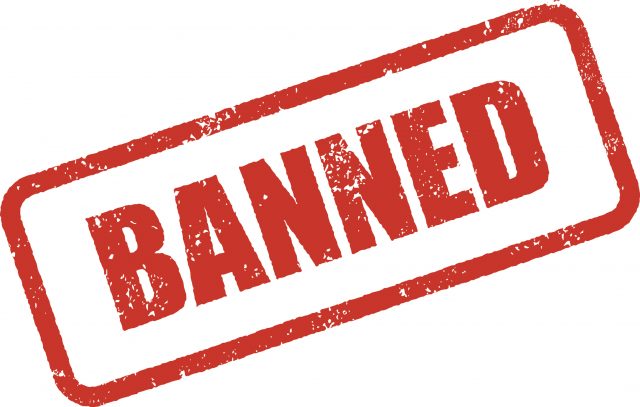WSOP.com made a splash this week, announcing plans to merge its Nevada and New Jersey players on May 1.
The two states have operated their online poker networks independently of each other for nearly five years now. Thanks to the framework of the Multi-State Internet Gaming Association (MSIGA), they can finally share liquidity across borders. MSIGA membership currently stands at three, with Delaware as the third arm of the network.
The news is relevant to Pennsylvania, too. The state legalized online poker last year as one component of its omnibus gambling expansion package. Licensing has just begun, and the Commonwealth is likely to join the multistate poker agreement.
A launch timeline is still TBD, but regulators only have 90 days to act on the first applications. The applications became available on April 16. It’s high time, then, to start musing on the possibilities of a four-state poker network.
Is PA interstate poker possible? Is it likely?
Yes, the PA iGaming law has provisions for liquidity sharing built in.
The concept is defined and addressed in a few different sections. One gives the Pennsylvania Gaming Control Board (PGCB) the authority to enter into “interactive gaming reciprocal agreements” with other jurisdictions, which sounds a lot like the MSIGA.
Another section clarifies that licensed operators in PA can offer their games to out-of-state players. Additionally, PA players can participate in out-of-state networks. Any interstate (or potentially international) partnerships must be constructed in accordance with the laws of each jurisdiction.
There is also a provision that allows operators to bypass PA’s testing process, provided they’ve undergone “comprehensive and thorough” testing elsewhere. That carveout falls under the heading “Use of other state standards.”
Not only is Pennsylvania interstate poker possible, it seems pretty likely.
As early as last year, regulators from NJ and PA were already meeting to discuss the logistics. Those conversations are clearly reflected in the written language, which legislates around some potential roadblocks. Unlike its neighbor, for example, PA’s law permits the routing of internet gambling traffic through other jurisdictions (say, NJ).
The liquidity-sharing provisions also apply to online casino jackpots and the like.
What will the PA online poker landscape look like?
There are 13 online poker licenses available, one for each of PA’s current and future casinos. At least 10 of those will probably launch online casinos, but only a handful are likely to pursue poker. Compared to casino games, it’s still a niche vertical.
Those properties would need to either develop their own poker platforms or partner with an existing provider. Here’s one potential scenario for an early market, with six skins spread across four networks:
Some of these partnerships are firmly in place, and some are more speculative. But this model provides something for each of the biggest brands in poker. And the more skins appear, the more incentive there would be for new/additional operators to join the space. Pala, for example, might look for an entry point. Parx could also launch online poker, though it doesn’t have a partner elsewhere.
Mohegan Sun is another operator in a speculative spot. It doesn’t have a direct partnership with The Stars Group, but the two share a mutual partner in Resorts Atlantic City. The property’s land-based license carries the certificates for both MoheganSunCasino.com and PokerStars NJ.
If Resorts wants its own back scratched in PA, the three parties could enter the market together. There’s also a working theory that PokerStars may partner with a smaller property, maybe Lady Luck Nemacolin.
It looks like partypoker has a path to market, too. Its parent company, GVC, is suspected to be aligned with Valley Forge dating back to 2015. Even if that’s not the case, the group will almost certainly find an avenue to serve the PA market. The law allows for third parties, including those without a land-based presence, to apply for unclaimed licenses.
WSOP/888 in the catbird seat
Regardless of how the rest of the market shakes out, the 888/WSOP network is especially well-positioned for Pennsylvania online poker.
World Series of Poker (WSOP), the largest poker brand in the world, is owned by Caesars Entertainment, one of the largest casino companies. Conveniently, it holds property in Nevada, New Jersey, and Pennsylvania, three states with legal online poker. And network partner 888, which provides the software, also operates the three Delaware poker sites.
Between them, they have the MSIGA map covered for the foreseeable future. Their broad reach has facilitated the first multi-state network in the country, which is poised to expand again. Should online poker roll out in PA as expected, WSOP/888 will have eight skins operating across four states.
The group also has a leg up on the tech side, it would seem. Most folks would agree that PokerStars and partypoker have superior standalone software, but those are NJ-only products for now. The 888 platform, on the other hand, is already approved by each state’s gaming regulators and authorized for interstate play.
Good behavior will give WSOP/888 additional access to some markets, too. Nevada, for example, will not give PokerStars a license due to an existing “bad actor” clause in regulations. The international market leader is serving some virtual time for its operations in the US prior to regulation.
There are no bad actor clauses in PA’s regulations, incidentally.
A lot riding on Pennsylvania
Pennsylvania is large enough to support its own online poker network, but it would function much better as the keystone of a multistate agreement.
As it stands right now, the three states with online poker have around 13 million combined residents. That’s about the same size as PA, which has 13 million of its own. Adding the Keystone State to the MSIGA would immediately double the reach of the network.
Since poker generates action in peer-to-peer games, the combined traffic should exceed the sum of the individual markets in short order. More players create more incentive to play, generating larger prize pools and longer periods of dense activity. That, in turn, should theoretically create more incentive for other states to join the movement.
Even with a four-state network, online poker won’t be a huge moneymaker in the short term. It doesn’t really need to be. Pennsylvania is populated by casino owners with large, multi-state portfolios and ambitions that dwarf online poker. It’s more of a marketing tool, a way to reach players in secondary markets. For WSOP, that includes driving customers to land-based WSOP events. Online bracelets events are now part of its multistate network as well.
Poker-specific brands like PokerStars and partypoker are, of course, exceptions to the above. Even those platforms, though, serve to cross-market online casino and other virtual products to some extent. In the greater scheme of things, even with shared liquidity, online poker is but a small piece of a big pie.
The post If Pennsylvania Joins Interstate Poker, The Player Pool Would Double appeared first on Play Pennsylvania.





